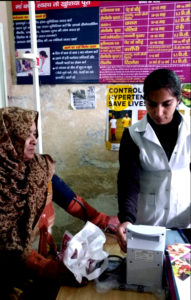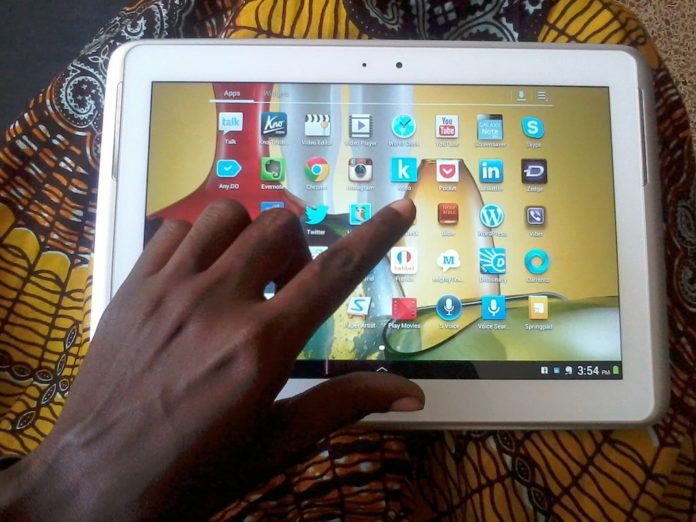Study by Public Health Foundation of India, London School of Hygiene and Tropical Medicine etc uses diabetes and hypertension and demonstrate effectiveness
 Equipping a trained health worker with a tablet and appropriate applications can work wonders in India’s fight against non-communicable diseases.
Equipping a trained health worker with a tablet and appropriate applications can work wonders in India’s fight against non-communicable diseases.
A large study on the Effectiveness of a mHealth-Based Electronic Decision Support System for Integrated Management of Chronic Conditions in Primary Care in India conducted by the Public Health Foundation of India (PHFI), the London School of Hygiene and Tropical Medicine, UK (LSHTM) and the Centre for Chronic Disease Control (CCDC) was presented at the prestigious American Heart Association annual meeting at Chicago on Saturday.
The results of the study were published in the American Heart Association Journal Circulation.
“Key lessons from the mWellcare study can contribute to the Government of India’s ambitious Ayushman Bharat program of enhancing the capacity of 150 000 health and wellness centers to provide comprehensive primary health care, with a strong focus on prevention and management of Non – Communicable Diseases (NCDs).”
The prospective, multicentre, open-label, cluster-randomized controlled trial involved 40 community health centers in Haryana and Karnataka. Using hypertension and diabetes mellitus as entry points, the trial evaluated the effectiveness of mWellcare, a mHealth system consisting of electronic health record storage and an electronic decision support for the integrated management of 5 chronic conditions. These were hypertension, diabetes mellitus, current tobacco and alcohol use, and depression.
Key findings from the study
- The blood pressure (13.6 mms Systolic BP and 12.6 mms in the Intervention and control arms respectively) and HBA1c (0.48% and 0.58% in the intervention and control arms respectively) declined significantly in both the arms at the end of the trial.
- The observed decline in the mWellcare arm (a M Health system consisting of clinical decision support and storage of electronic health records) was not significantly different from the enhanced usual care.
Key Lessons from the Study
- Importance of providing a clinic nurse to support the physician in the management of hypertension and diabetes mellitus
- Ensuring continuous availability of essential drugs
- Periodic training of healthcare professionals on guideline- directed care
- Maintaining Electronic patient registry
- Monitoring quality of care
- Centrally updating clinical protocols for all users through the mHealth application,
- Generating useful information from the registry for planning (e.g., forecasting requirement of drugs, diagnostics, manpower)
Professor Dorairaj Prabhakaran, Vice President – Research and Policy, PHFI and the principal investigator of the study said, “Key lessons from the mWellcare study can contribute to the Government of India’s ambitious Ayushman Bharat program of enhancing the capacity of 150 000 health and wellness centers to provide comprehensive primary health care, with a strong focus on prevention and management of Non – Communicable Diseases (NCDs). The trial demonstrates the importance of trained non-physician health care providers and allied health professionals.”
Highlighting the details of the study design, Professor Pablo Perel, Professor of Clinical Epidemiology and the Director Centre for Global Chronic Conditions, London School of Hygiene & Tropical Medicine (LSHTM) and co- investigator of the study said, “The mWellcare study showed that it is possible to conduct large and high-quality trials to robustly evaluate ways of improving the care of people with chronic non-communicable diseases in low- & middle-income countries. Although the study did not find strong evidence that the intervention improved the primary outcome, the substantial improvement in the enhanced (control) arm suggests that there are potential approaches used in that arm (e.g. capacity building, task shifting, etc) that could have an important role in improving the care of these patients.”
